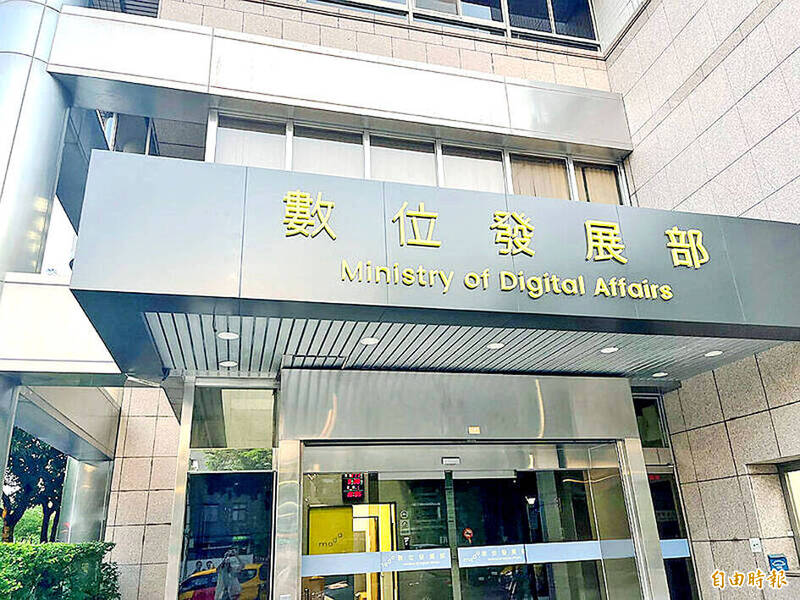《TAIPEI TIMES》MODA develops five-year plan for AI

The entrance to the Ministry of Digital Affairs in Taipei is pictured in an undated photograph. Photo: Hsu Tzu-ling, Taipei Times
CRITICAL SUPPORT: Taiwan needs technologies, talent and resources to develop AI, but enterprises with limited capital need government assistance, an official said
Staff writer, with CNA
The Ministry of Digital Affairs (MODA) has mapped out a five-year strategic plan to promote the development and use of artificial intelligence (AI) as a tool to improve the efficiency of government operations, it said in a report to the Legislative Yuan.
The government AI development strategic plan, expected to be implemented from 2026, lays out five strategies. First, encourage government agencies to develop smart services, including building smart counters and smart secretaries, so people can apply for state services with the help of AI tools.
Second, build automated administrative services.
The ministry said it would guide government agencies in the use of AI to assist public servants in routine and complex work, help with system construction and information security maintenance, and focus on case review or decisionmaking assistance in specific business areas.
Third, optimize AI models.
The ministry said it aims to create government data fabric and use privacy enhancement technology to allow government data to be better transmitted and used across agencies while ensuring security and anonymity of sensitive data.
Fourth, create smart services that ensure digital inclusion and equal opportunity for all and take into account the need to protect the fair participation of vulnerable groups.
Fifth, establish an environment for AI applications. The ministry would establish a secure and compliant data sharing environment so various agencies can obtain required information safely and efficiently.
The ministry has also devised several complementary measures for the government AI development plan, including the development of an AI application manual for the public sector, with a beta version of the manual to become available for trial use by government agencies before the end of this year.
In related news, Minister of Digital Affairs Huang Yen-nun (黃彥男) on Monday said that that the ministry is planning to launch a program by spending NT$10 billion (US$310.8 million) to cultivate local start-ups in AI development.
Speaking at an AI forum organized by Shih Hsin University, Huang said the ministry would disclose the details of the NT$10 billion plan at the end of this year.
The investment is scheduled to start next year aiming to help at least 20 AI start-ups to grow and allow them to raise funds on the capital market, he added.
Likening the AI boom to the industrial revolution, Huang said Taiwan should catch up with trends to add momentum to economic growth by pushing up industrial productivity.
Otherwise, the nation would be left behind, he said.
To develop AI, Taiwan needs technologies, talent and resources, he said.
However, the country is full of small and medium-sized enterprises with limited capital so financial assistance from the government is a must, he added.
A white paper published by the Small and Medium Enterprises (SME) and Startup Administration of the Ministry of Economic Affairs showed that the number of Taiwan’s SMEs hit 1.63 million as of the end of 2022.
According to the Standards for Identifying Small and Medium- sized Enterprises, an SME is a business that has paid-in capital of no more than NT$100 million or has fewer than 200 regular employees.
Capital is a critical factor for AI start-ups to expand, so MODA has secured NT$10 billion in financial assistance from the National Development Fund of the Executive Yuan to help these smaller companies, Huang said, adding that the money would be spent over 10 years from next year.
The AI start-up program is expected to result in capital formation ranging NT$100 billion to NT$200 billion in the local digital industry and raise job openings by about 10,000, while at least 20 companies would have the potential to raise funds from the capital market, he said.
The NT$10 billion spent in the 10 years is expected to create about NT$1 trillion in production value, he added.
新聞來源:TAIPEI TIMES























